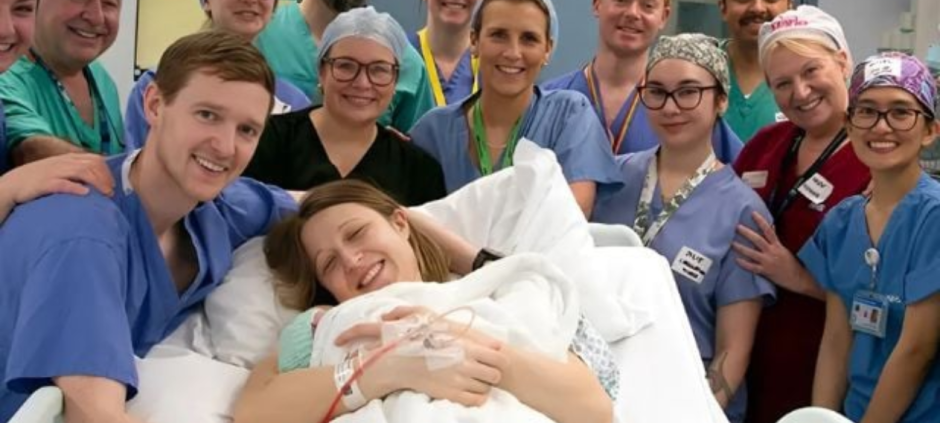In a pioneering medical achievement in the UK, Grace Davidson, 36, has given birth to a healthy baby girl after receiving a womb transplant from her sister, Amy Purdie. Grace, who was born with Mayer-Rokitansky-Küster-Hauser (MRKH) syndrome, a rare condition that left her without a functioning uterus, underwent the life-changing procedure in 2023 at Churchill Hospital in Oxford. The transplant, a groundbreaking 17-hour operation, was a medical first in the UK.
Just over a year later, Grace gave birth to a daughter, named Amy Isabel, via caesarean section at Queen Charlotte’s and Chelsea Hospital in London on 27 February. The name honors both Amy, the donor, and transplant surgeon Isabel Quiroga, who led the medical team. Grace recalled the moment she first held her daughter, saying, “It was really wonderful. It was hard to believe she was real.”
Also Read: UK Strongly Condemns Train Attack in Balochistan
The transplant and subsequent birth were part of a clinical trial led by Womb Transplant UK, with approval for 15 transplants, including five from living donors. Grace and her husband, Angus Davidson, 37, had undergone fertility treatment before the transplant, and Grace successfully became pregnant on her first IVF attempt. The charity covered NHS-related costs, and the medical staff volunteered their time to make the operation possible.
Professor Richard Smith, who leads the trial, expressed his joy at the successful outcome, marking the culmination of 25 years of research. He said, “It’s really something.” This success, along with three additional womb transplants using deceased donors, offers hope for women in the UK who are unable to carry children due to absent or non-functioning wombs.
The breakthrough has global implications, with over 135 womb transplants performed worldwide, resulting in at least 65 births. Grace, who is currently on immunosuppressants, hopes to have one more child before undergoing a hysterectomy to discontinue the medication. Her story is now seen as a beacon of hope for women facing similar reproductive challenges.











